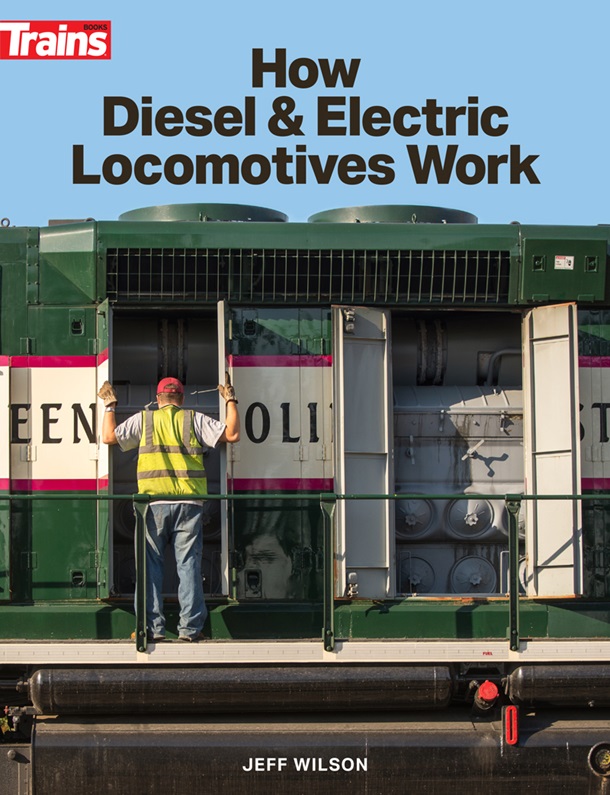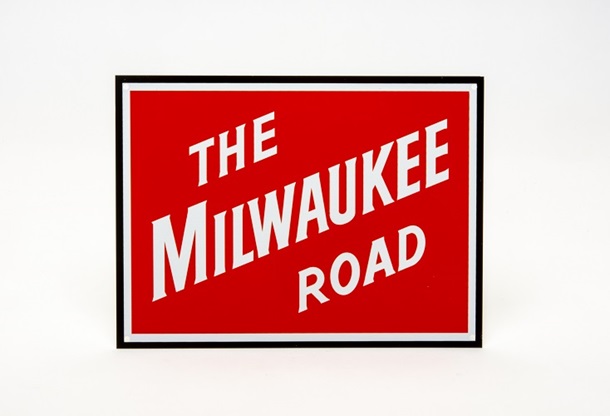The storied plant in suburban Erie has been home to locomotive building and repairs for more than 100 years, but only became an official part of the Wabtec Corp. on Monday after that company finalized a merger with GE Transportation.
The Erie Times-News reports that this is first time the union workers’ organization has authorized a strike since 1969.
One major issue, the newspaper reports, is that new Wabtec workers and recalled workers who were laid off, would be paid between $16.75 and $25 per hour, instead of the $35 per hour current laborers are earning.
Leaders from the United Electrical Radio and Machine Workers Union Locals 506 and 618 authorized the strike Feb. 26 after three days of negotiations between the unions and Wabtec. Local 506 President Scott Slawson told Erie media the call to strike was difficult to make.
“Transportation is one of the last manufacturing strongholds in the U.S. so any large strike in the sector is a concern,” says Bernie Wagenblast, editor of the Transportation Communications Newsletter. “The 14-week 1969 strike hurt GE. Their profits dropped nearly 25 percent that year. Workers, I think, have to balance concessions they hope to get from the company versus the long-term effects a strike will have on the viability of the Erie plant.”
Problems for the unionized workforce began in 2015 with various labor troubles including the mass layoffs that began in November of that year. Sources with the unions said that negotiations with GE management focused at that point to keep and build the competitive nature of the plant in Erie.
While Erie-based union workers were being laid off, the plant in Fort Worth was still hiring off the street.
In an editorial intended for the Erie newspaper, but also provided to Trains, Wabtec Senior Vice President Greg Sbrocco says Wabtec’s aims are similar: to keep Erie competitive.
“What you may not know is that the Erie site is GE Transportation’s least competitive site globally,” Sbrocco wrote. “Over the years, we have repeatedly worked to make Erie a more viable plant, but the Union refused. As a result, work transferred out of Erie and the community suffered.”
Sbrocco goes on to write that $35 per hour wages are above nearly any in the Erie region. The greater Erie area, with a population of about 280,000, is the most populous for 100 miles in any direction.
After the 2015 layoffs, GE agreed to keep the international locomotive work at Erie but transferred all domestic locomotive production to Fort Worth. In exchange, the union agreed to improve the workforce’s efficiency.
GE began shifting all production work to Texas anyway in July 2017, only to see the shift stalled in 2018 as orders for re-built and new locomotives forced GE to keep the Erie’s unionized workers in place.
Wabtec addressed several labor issues in months leading to the merger but held fast to changes the company deemed necessary to make the company more viable.
Concessions included overtime the union calls “mandatory” and that a Wabtec representative called “scheduled”, wage cuts for new hires, and a right to hire 20 percent of workers as temps.
Union officials say they wanted to start work Monday under the pre-existing agreement for 30 days while negotiating with Wabtec, but Wabtec held firm to changes.
“Wabtec has completed negotiations with four separate unions representing five bargaining units. Negotiations were collaborative and swift,” Sbrocco writes. “Ratification votes were overwhelmingly favorable, and relationships remain positive. The terms in those new contracts are very similar to those proposed to the [electrical workers] in Erie.”
Wabtec currently has large orders for new or rebuilt locomotives for five of the seven class I railroads, and six international customers.
UPDATE: Complete write-through with comments from Wabtec and Bernie Wagenblast. Feb. 26, 2019, 2:19 p.m. Central time.















In the 1970’s and 1980’s I saw workers strike and factories close. I guess they can go work at the nearby casino and horse race track…
Bye Bye Erie plant.
All Executives earn millions of $$$ in unrealistic annual salaries plus an additional big fat padded bonus each time they eliminate more Blue Collar workers in a calendar year.
BS…and I don’t mean Birmingham Southern…
…not to forget politicians, but shucks, that’s only taxpayer’s money to begin with, right?
Andrew; to your point about Wabtec’s markets being global and the need to keep costs in line; why is it always the folks on the shop floor expected to take the hit while the folks in the executive suite continue with the $3 million plus salaries, bonuses and stock options? Seems to me there would be a heck of a lot more bang for the buck to cut some of the fat at the top before going after the people entrusted with actually building the product you are trying to sell.
Let them strike.If that helps EMD pick up more new locomotives & more business then let them strike
Robert: Public info – salary.com.
Regardless of the merits of each side in the dispute, what sane labor relations executive would provoke a strike literally one Day One? Isn’t it better to settle in first? Maybe provoke a strike after, say, a second day?
I’m not at all pro-union, but to me it seems Wabtec led with its chin and got flattened. Idiots. Wabtec should appreciate the immensely fine product it inherited from GE. Pro-union or anti-union, somebody is building those great locomotives and it wasn’t Wabtec’s human resources department.
Curt Warfel, please provide your evidence that executive salaries at Wabtec are $3,000,000 plus bonuses and stock options. In any event at unionized manufacturing companies executive salaries are usually a small piece of the total payroll. If $35 per hour makes Wabtec noncompetitive with other suppliers of locomotives then even the $35 per hour is out the window. People (and organizations) are almost always going to choose the cheaper priced items. When I heard that the portion of the total price of a GM vehicle is greater for pension costs than it is for steel, I switched brands and now I own Toyotas and Hondas.
Mr. Berg, you obviously either didn’t read the whole article or missed the end of it because the major issue is that new and recalled workers are being asked to take less pay ($16.75 to $25.00 per hour) current workers will keep their negotiated $35.00 per hour.
Mr. McGuire: Sounds like a slam towards workers who only expect to keep their current wage agreement in place. They are not asking for “more wages” by any means. I have no idea how you sir are paid, be it an hourly wage, salary, or even a pension and/or social security, but, imagine is all of a sudden someone just arbitrairily cut your income in half….would you feel the same as you do now???
More jobs headed south I would guess. I’ll bet that they won’t even guess why? Good bye Erie.
And fast food workers will make $15 per hour. Doesn’t make any sense.
Price competition for Wabtec products and services is nationwide or even worldwide. To keep their company viable, they have to be price competitive. Unfortunately, labor rates are pretty much a local issue. It’s natural that the jobs migrate to where labor rates are lower.
NLMK makes $80 million dollar investment in Farrell, Pa. plant.
Vocal Group Hall of Fame in nearby Sharon, Pa is close.
Daffin’s Candies is in Sharon, Pa.